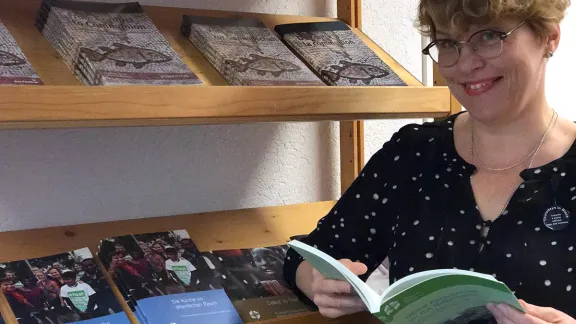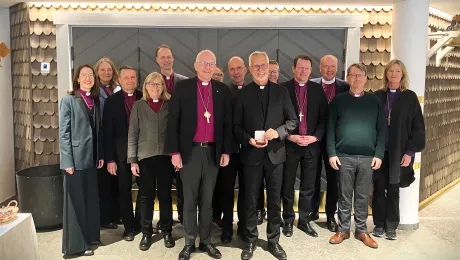
Rev. Dr Kaisamari Hintikka. Photo: LWF/I. Benesch
Recently, I spent three days in a meeting finalizing a text that summarized the results of a five-year ecumenical dialogue process on baptism between Lutherans, Mennonites and Catholics. One of the main questions that arose was: How do we live out our baptism as individual Christian and as Christian communities locally and globally?
How do we live out baptism? This has actually been the question that Lutherans have asked themselves over the last five centuries, even if we have not always expressed it in these particular words. The core finding of the Reformation, namely that grace is free for all, was liberating news but also a vocational call for every baptized person to live out baptism in everyday life. Luther identified three estates or spheres of society where Christians were called to do this: politia, oeconomia and ecclesia—that is, in politics, at home and in the church. Not one of these spheres is more important than the other—in all three Christians can fulfill their vocation, that is, live out their baptism.
Relations between these spheres in the twenty-first century global context are much more complex than they were in sixteenth-century central Europe. In preparing for the Reformation Anniversary, the LWF took a closer look at the dynamics between—what we define as—the three estates of today: politics, economics and theology, and how the Lutheran churches live out their baptismal vocation in the sometimes tense but also sometimes fruitful interaction between these spheres.
In October 2015, a conference bringing together around 80 theologians took place in Windhoek, Namibia, to reflect on these particular issues. As a result, they identified four distinct features of transformative theology that can inform or be informed by political and economic realities. Transformative theology has to be contextual, critical, creative and concrete. What does this mean? Read more in the recently published book in the LWF Documentation series, Global Perspectives on the Reformation. Interactions between Theology, Politics and Economics, edited by Anne Burghardt and Simone Sinn or order your copy from [email protected]
The study report of the trilateral dialogue will be published in early 2018.
The Rev. Dr Kaisamari Hintikka is the LWF Assistant General Secretary for Ecumenical Relations and Director of the Department for Theology and Public Witness (DTPW)


